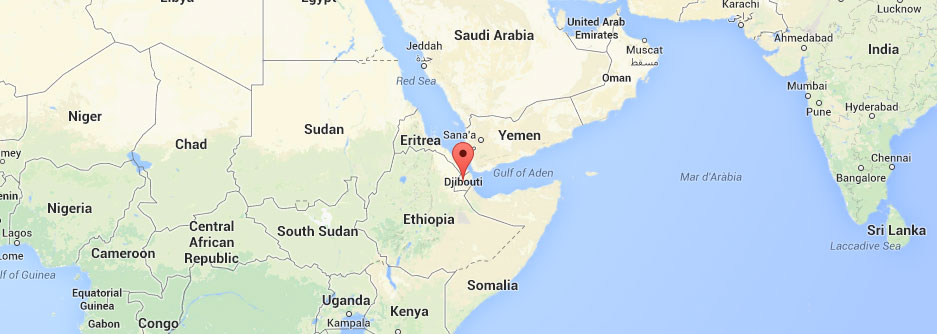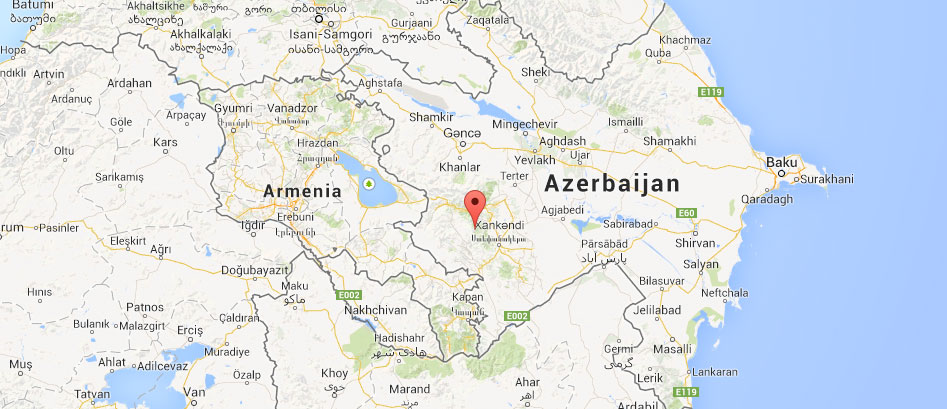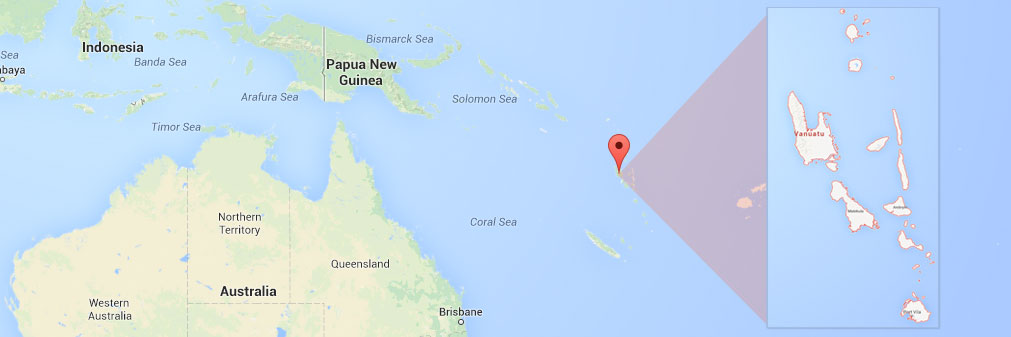I bet you can name quite a few countries by heart. Not only the one you live in, but your neighboring countries, maybe some places you visited. You’ve heard of countries, regions and territories in history and geography class, you hear about strange places like Transnistria in the news, but still there are those places that you never heard of before.
This is a list of 10 nations that you probably hadn’t heard of before in your life, but still people live there, have a history, have their own culture and habits. It’s strange to think that even the most remote little island has a proper economy, roads, buildings and even Wi-Fi. Or is it just me who thinks that?
In alphabetical order here are 10 Nations You Probably Never Heard Of:
[sc:dc1 ]Djibouti
The African country Djibouti is a small country in the Horn of Africa, with a small, but strategic coastal border of the Red Sea and the Gulf of Aden. The main seaport and container terminal (Port of Djibouti) serves as a major refueling and transshipment center for access to the Red Sea and the Indian Ocean, providing facilities for anyone going across the world’s busiest shipping lanes.
- Officially: Republic of Djibouti
- Independency: Independent from France since 1977
- Neighbouring countries: Located in the Horn of Africa, neighbored by Eritrea (north), Ethiopia (west and south), and Somalia (southeast)
- Population: ~810,000
- Demonym: Djiboutian
- Official languages: French and Arabic, but also Somali and Afar
- Government: Semi-presidential republic
- Member of United Nations: Yes, since 1977
- Currency: Franc
- Internet domain suffix (TLD): .dj
- Official website: Presidence.dj
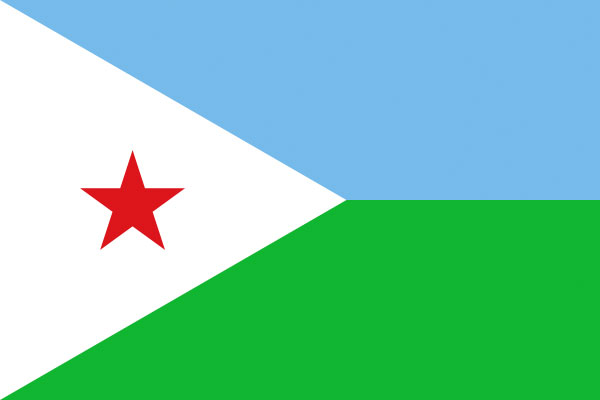
The Djibouti flag
[sc:dc content=2]Kiribati
Kiribati -after the local pronunciation of the guy who sailed through islands in 1788, Thomas Gilbert- is an island country, consisting of 16 uninhabited and 16 inhabited atolls and islands.
The I-Kiribati people living on the most eastern island, Kirimati or Christmas Island) are always the first to celebrate New Years Eve (or any new day of that matter). Because they were also the first to enter the new millennium a lot of tourists went there to be the first in the world to celebrate the event.
- Officially: Independent and Sovereign Republic of Kiribati
- Independency: Independent from the United Kingdom since 1979
- Neighbouring countries: Island country in the central tropical Pacific Ocean, a few thousand miles north east of Australia
- Population: ~100,000
- Demonym: I-Kiribati
- Official languages: English and Gilbertese (after 1788 British explorer Thomas Gilbert)
- Government: Parliamentary Republic
- Member of United Nations: Yes, since 1999
- Currency: Kiribati Dollar and Australian Dollar
- Central bank: Reserve Bank of Australia
- Internet domain suffix (TLD): .ki
- Official website: kiribatitourism.gov.ki
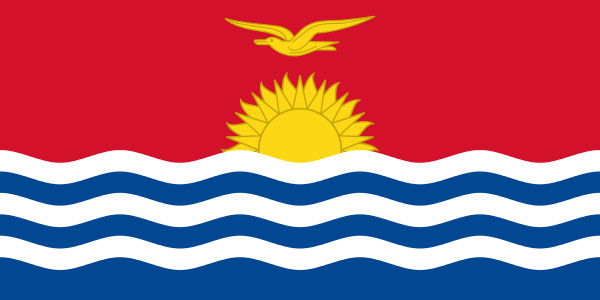
The Kiribati flag, a nice sunset into the ocean. That’s definitely all they see around them.
[sc:dc content=3]Mayotte
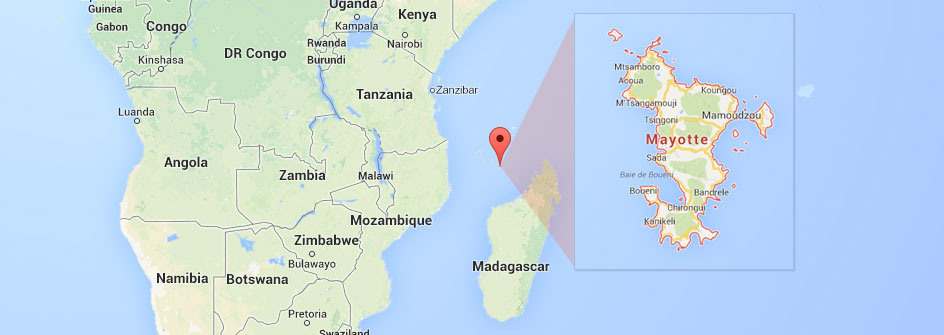
Mayotte is a small island between Mozambique and Madagascar, southeast Africa. As a part of France, it’s one of the farthest nations that’s part of the EU and where they pay in Euros.
Mayotte is a beautiful little island between Madagascar and Mozambique, off the coast of Southeast Africa. It’s an overseas department and region of France and since this year it’s officially part of the Outermost Regions of the European Union.
- Officially: Mayotte
- Independency: Part of France, purchased in 1843
- Neighbouring countries: Island country, just between the islands of Madagascar and Mozambique
- Population: ~210,000
- Demonym: Mahoran
- Official languages: French (native languages Shimaore and Kibushi)
- Government: Overseas department of France
- Member of United Nations: France is, so indirectly: yes
- Currency: Euro
- Internet domain suffix (TLD): .yt
- Official website: France.fr
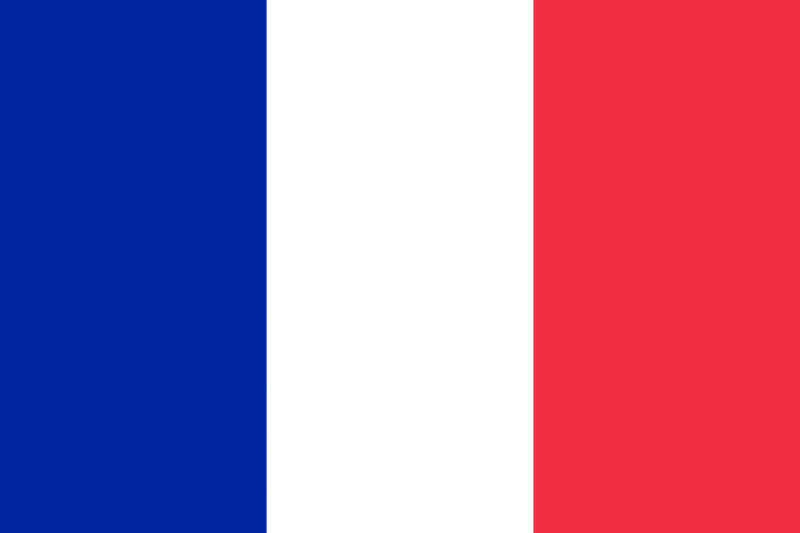
The flag of Mayotte is simply the French flag.
[sc:dc content=4]Nagorno-Karabakh Republic
Nagorno-Karabakh Republic or the Republic of Artsakh is complicated. The Nagorno-Karabakh area is a landlocked region in the South Caucasus inside the country Azerbaijan, mainly inhabited by Armenians and largely in control of the unrecognized Nagorno-Karabakh Republic. Because mainly Armenians live in the area you’d figure it belongs to Armenia, but it doesn’t. Since 1918 both Armenia and Azerbaijan claimed the land simultaneously, but then the Soviet Union (particularly the Azerbaijan SSR) took control over the entire area and it has remained Azerbaijan territory ever since, but the dispute between Azerbaijan and Armenia has never ended. The UN recognizes Nagorno-Karabakh as part of Azerbaijan, but even Azerbaijan itself doesn’t bother controlling the area too much. Yes, complicated.
- Officially: Nagorno-Karabakh Republic (NKR) or Republic of Artsakh
- Independency: Globally unrecognized (except by three other non-UN states) independency from Azerbaijan since 1991. The UN still recognizes Nagorno-Karabakh as part of Azerbaijan.
- Neighbouring countries: Armenia, Azerbaijan, and Iran
- Population: ~145,000
- Demonym: Niuean (but New Zealand citizens)
- Official languages: Armenian
- Government: Unrecognised presidential republic
- Member of United Nations: No, the UN doesn’t recognize it as an independent state
- Currency: Armenian dram
- Internet domain suffix (TLD): none
- Official website: President.nkr.am
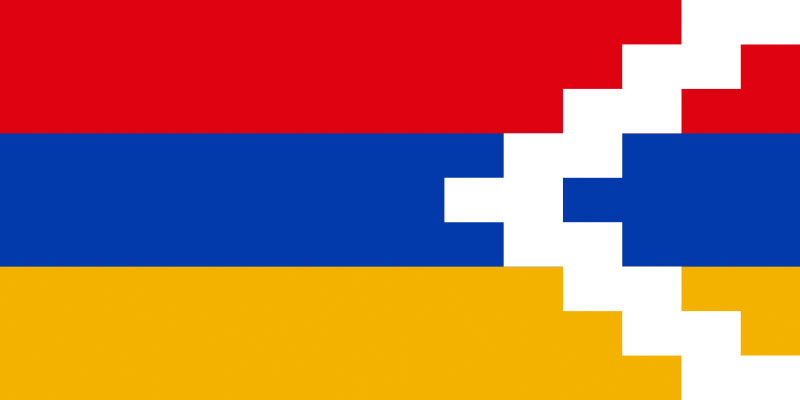
No this this not a pixel art version of the Nagorno-Karabakh flag, it’s the real deal!
[sc:dc content=5]Nauru
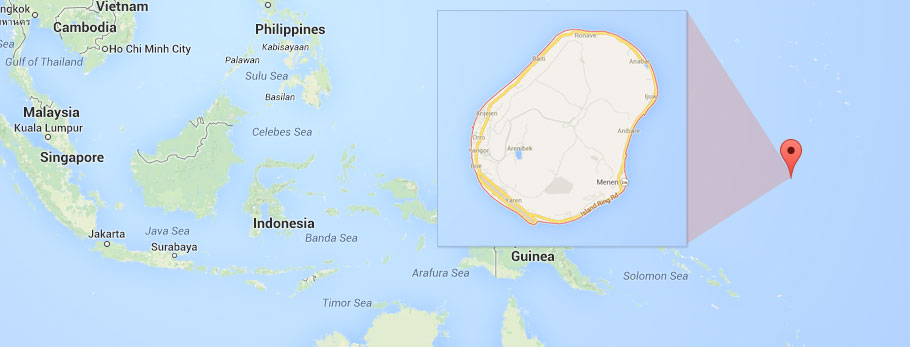
The small island of Nauru is divided into 14 Districts with a total population of about 9,300 Nauruan people.
Formerly known as Pleasant Island, Nauru is the smallest nation in the South Pacific and even the 2nd smallest country by population, Vatican City being the smallest. Even though it’s so small, Nauru is divided into 14 Districts, with a population ranging from about 100 to approximately 2,800.
- Officially: Independent and Sovereign Republic of Kiribati
- Independency: Independent from the United Nations Trust Territories since 1968. Since late 19th century it had belonged to the Germans, the United Nations Trust Territories and briefly occupied by Japan in World War II.
- Neighbouring countries: Island country in Micronesia, a subregion of Oceania in the South Pacific, some thousand miles north east of Australia
- Population: ~9,300
- Demonym: Nauruan
- Official languages: English and Nauruan
- Government: Parliamentary Republic
- Member of United Nations: Yes, since 1999
- Currency: Australian Dollar
- Internet domain suffix (TLD): .nr
- Official website: Naurugov.nr, DiscoverNauru.com
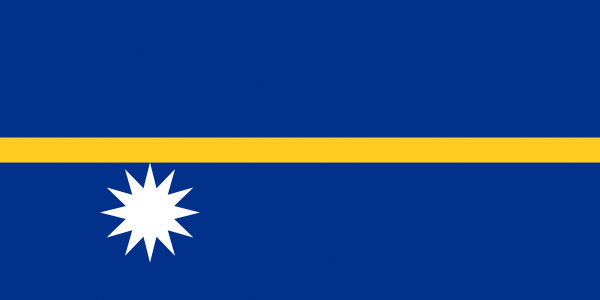
The flag of Nauru
[sc:dc content=6]Niue
Niue seems to be a nice and quiet little island state about 1,500 miles northeast of New Zealand. Economically the country relies on fisheries, agriculture and tourism. It’s actually the world’s first “Wi-Fi nation” to fully cover the entire country with Wi-Fi access.
- Officially: Niue
- Independency: A self-governing state in free association with New Zealand since 1974
- Neighbouring countries: Island country, in the middle of nowhere in the South Pacific Ocean
- Population: ~1,400
- Demonym: Niuean (but New Zealand citizens)
- Official languages: Niuean and English
- Government: Unitary parliamentary constitutional monarchy
- Member of United Nations: No, but the UN recognizes Niue as equivalent to independence for international law purposes since 1994
- Currency: Niue dollar, New Zealand dollar
- Internet domain suffix (TLD): .nu
- Official website: Gov.nu
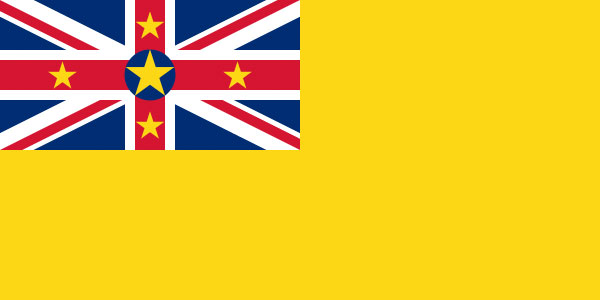
The flag of Niue. I wonder which country has something to do with this tiny island nation.
[sc:dc content=7]Palau

Another small island nation which consists of 250 smaller islands. 21,000 are spread out across these islands.
Island country Palau is part of the island group of Micronesia. The country consists of 250 small islands with a population of about 21,000 people spread across these islands.
- Officially: Republic of Palau
- Independency: Independent from the United States (then under the Trust Territory of the Pacific Islands) since 1994. Over the years (since the 18th century) Palau belonged to Spain, Germany, Japan and the United States.
- Neighbouring countries: Island country, near the Philippines and Indonesia in the western Pacific Ocean
- Population: ~21,000
- Demonym: Palauan
- Official languages: English and Palauan (but also Japanese, Sonsorolese on particular islands)
- Government: Unitary presidential republic
- Member of United Nations: Yes, since 1994
- Currency: United States Dollar
- Internet domain suffix (TLD): .pw
- Official website: Palaugov.org
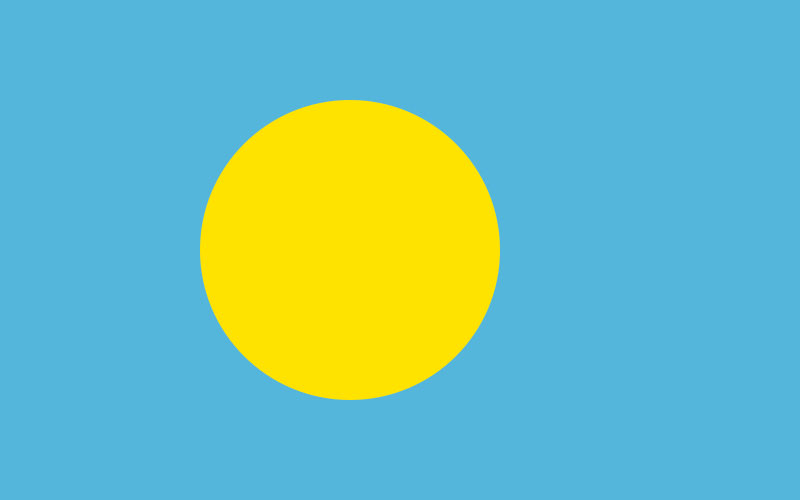
The flag of Palau
[sc:dc content=8]Pitcairn Islands

Pitcairn Islands is where about 50 descendants of the Bounty mutiny live. Look it up, it was in 1789.
Pitcairn Islands is an island nation comprised of four small islands. Only one these islands, Henderson Island, is inhabited by about 50 people: the descendants of the British people involved in the Mutiny of the Bounty in 1789 and the Polynesians who accompanied them. This makes Pitcairn the smallest national jurisdiction by population in the world.
- Officially: Pitcairn Group of Islands
- Independency: Part of the United Kingdom as a British Overseas Territory
- Neighbouring countries: Island country, in the middle of nowhere in the South Pacific Ocean
- Population: 56
- Demonym: Pitcairn Islander
- Official languages: English, Polynesian and Chilean
- Government: British Overseas Territory
- Member of United Nations: Yes, as a Non-Self-Governing Territory since 1946
- Currency: New Zealand dollar
- Internet domain suffix (TLD): .pn
- Official website: Government.pn
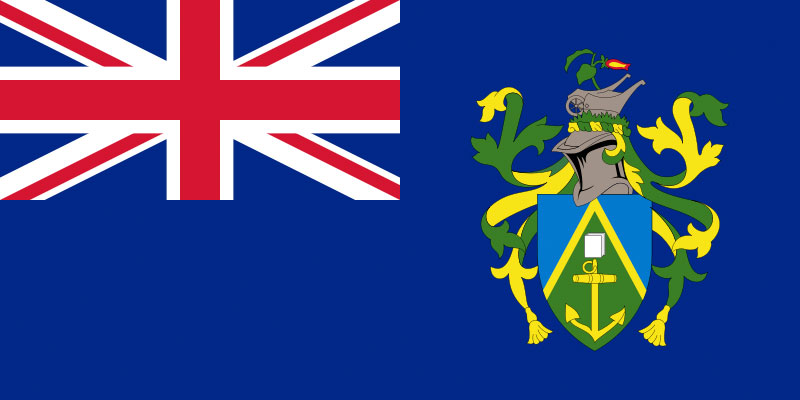
Although the mutineed, they still are a British Overseas Territory.
[sc:dc content=9 ]Sealand
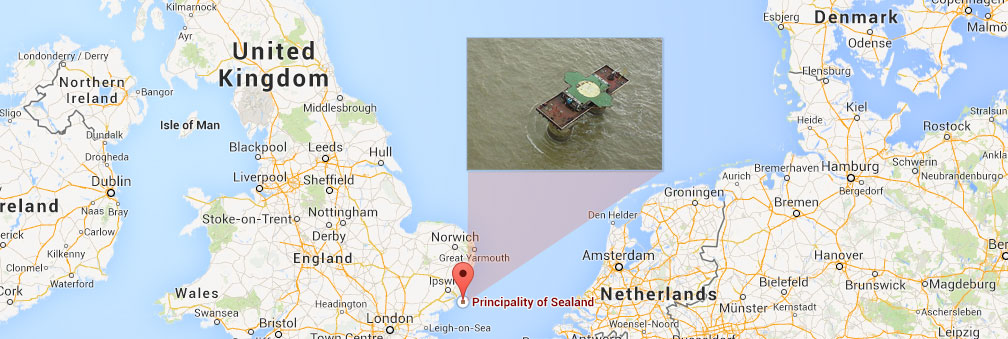
Sealand is a self-acclaimed nation off the coast of England, in Bates’ words “de facto recognized” as a country through a strange hostage situation.
Now this is something entirely different. The micronation of Sealand was founded in 1967 by the late British pirate-broadcaster Paddy Roy Bates on an abandoned British World War II installation called HM Fort Roughs. Due to a hostage situation on the newly founded Sealand, involving some Germans and Dutch intruders, Germany sent a diplomat to the United Kingdom who then claimed they did not have jurisdiction in those parts of international waters. This denial of jurisdiction is what Bates used as the de facto recognition of his sovereign country.
- “Officially”: Principality of Sealand
- Independency: Established in 1967
- Neighbouring countries: Island micronation, a few miles off the coast of southeast England
- Population: ~50
- Demonym: Sealander or Sealandic
- Official languages: English
- Government: Oligarchy, Constitutional monarchy
- Member of United Nations: No, it’s not a formally recognized nation
- Currency: Sealand dollar
- Internet domain suffix (TLD): none
- Official website: Sealandgov.org
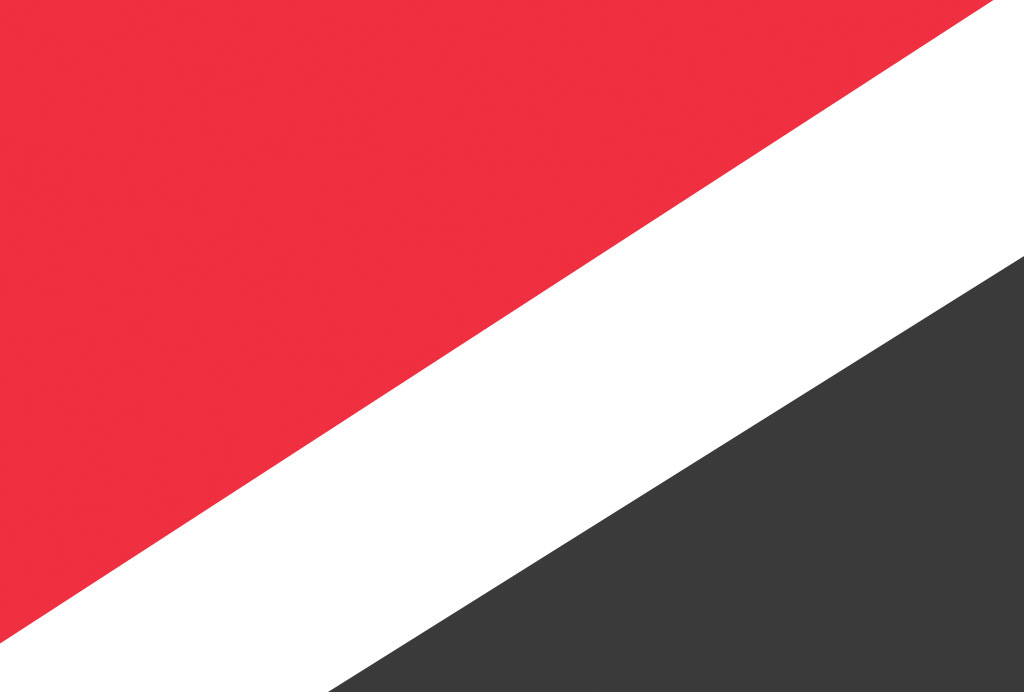
In 1975 Mr. Bates published a Sealand constitution, a flag, an anthem, their own currency and passports.
[sc:dc content=10]Vanuatu
Vanuata, or known as the New Hebrides when it was an Anglo-French condominium from 1906 to 1980, is another small island nation near in the South Pacific Ocean near Australia. The people of Vanuatu, the Ni-Vanuatu, sometimes suffer over 50 earthquakes per year, usually between 4.0 and 6.5 magnitude, but that doesn’t keep well over 200,000 people from living on this little piece of paradise.
- Officially: Republic of Vanuatu
- Independency: Independent from both France and United Kingdom (they both claimed parts of Vanuata) since 1980
- Neighbouring countries: Island country, about 1,000 miles northeast of Australia
- Population: ~225,000
- Demonym: Ni-Vanuatu
- Official languages: Bislama, French and English
- Government: Unitary parliamentary republic
- Member of United Nations: Yes, since 1980
- Currency: Vanuatu vatu
- Internet domain suffix (TLD): .pw
- Official website: Palaugov.org
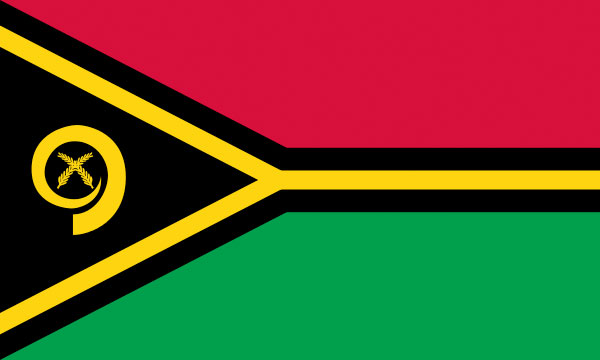
The Vanuatu nation flag.
Conclusion
You can imagine there are so many more countries that you probably never heard of before, simply because they are either too small or too insignificant to be even mentioned in mainstream media. That, or perhaps they are simply unrecognized countries and the only time you hear from them is when there’s a public revolt or something.

